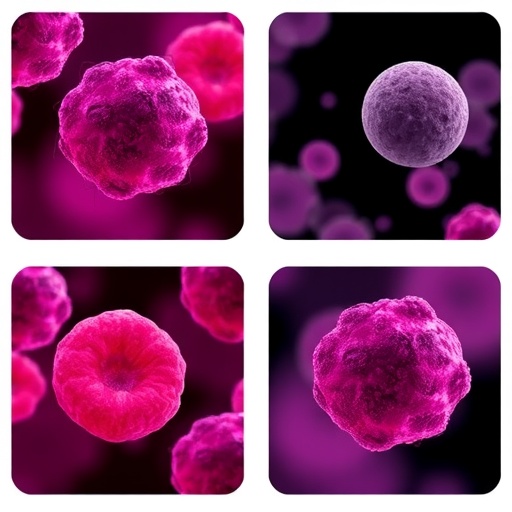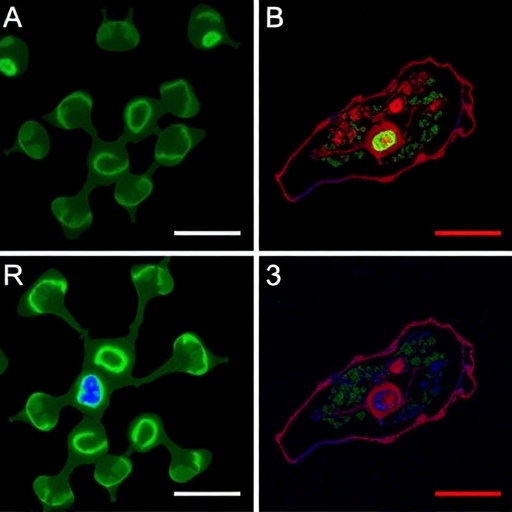Location of a modified structural protein may identify depressed individuals

Credit: UIC
University of Illinois at Chicago researchers report that in depressed individuals there are increased amounts of an unmodified structural protein, called tubulin, in lipid rafts — fatty sections of a cell membrane — compared with non-depressed individuals.
Their findings are published in the Journal of Neuroscience.
Tubulin is part of a protein complex that provides structure to cells. This complex also is involved in binding a specific protein called Gs alpha, or Gsa, which is a signaling molecule that conveys the action of neurotransmitters like serotonin.
Previous work established that high levels of Gsa were in the lipid rafts of depressed individuals and that Gsa lost effectiveness when in those lipid rafts. Gsa moved out of the lipid rafts after treatment with antidepressants or after using a drug inhibitor for histone deacetylase 6 (HDAC-6) — an enzyme that removes modifications from tubulin — suggesting a role of tubulin in depression as well.
Mark Rasenick, UIC professor of physiology and psychiatry at the College of Medicine, and colleagues analyzed post-mortem brain tissue from individuals with and without a diagnosis of depression to determine the location and degree of modified tubulin. A subgroup for depression also included individuals who died by suicide.
“While some studies suggest that there are differences between depressed individuals who died by suicide and those that did not, we observed a profound decrease in the extent of acetylated tubulin in lipid raft membranes from brains of all depressed subjects,” said Rasenick, who is also a research career scientist at the Jesse Brown Veteran Affairs Medical Center.
In all groups, there were no significant changes in the amounts of modified alpha tubulin, HDAC-6, or alpha tubulin acetyltransferase 1 — a protein that adds modifications to tubulin. However, there was less modified tubulin found in the lipid rafts of both depression groups versus the non-depressed group. According to Rasenick, the data suggest that diminished tubulin acetylation may be essential in harnessing Gsa to lipid rafts during depression. Antidepressants reverse this process and allow fuller function of Gsa and the neurotransmitters that activate it.
PAX Neuroscience Inc., a company created by Rasenick, researches how Gsa localization could be a diagnostic biomarker in blood cells to identify individuals with depression. Now the company will explore tubulin-related depression therapeutics and diagnostics. This may add new approaches to therapy and create diagnostic platforms to determine, in just a few days, whether an antidepressant is working.
“This work is important because half of the people who appear to be suffering from depression don’t seek treatment,” Rasenick said. “This is likely due to the social stigma surrounding people with psychiatric problems. But having an identified biological basis for depression could help people to realize that depression is not ‘their failure’ and allow them to treat it like any other illness.”
###
Harinder Singh, Justyna Chmura, Runa Bhaumik and Ghanshyam Pandey from UIC were co-authors.
Funding was provided by grants and awards from the U.S. Department of Veteran Affairs (BX001149 and BX 004475), the National Institutes of Health (RO1AT009169, R21 NS 109862 and RO1MH106565) and the American Heart Association (16POST27770113).
Media Contact
Jackie Carey
[email protected]
Original Source
https:/
Related Journal Article
http://dx.





